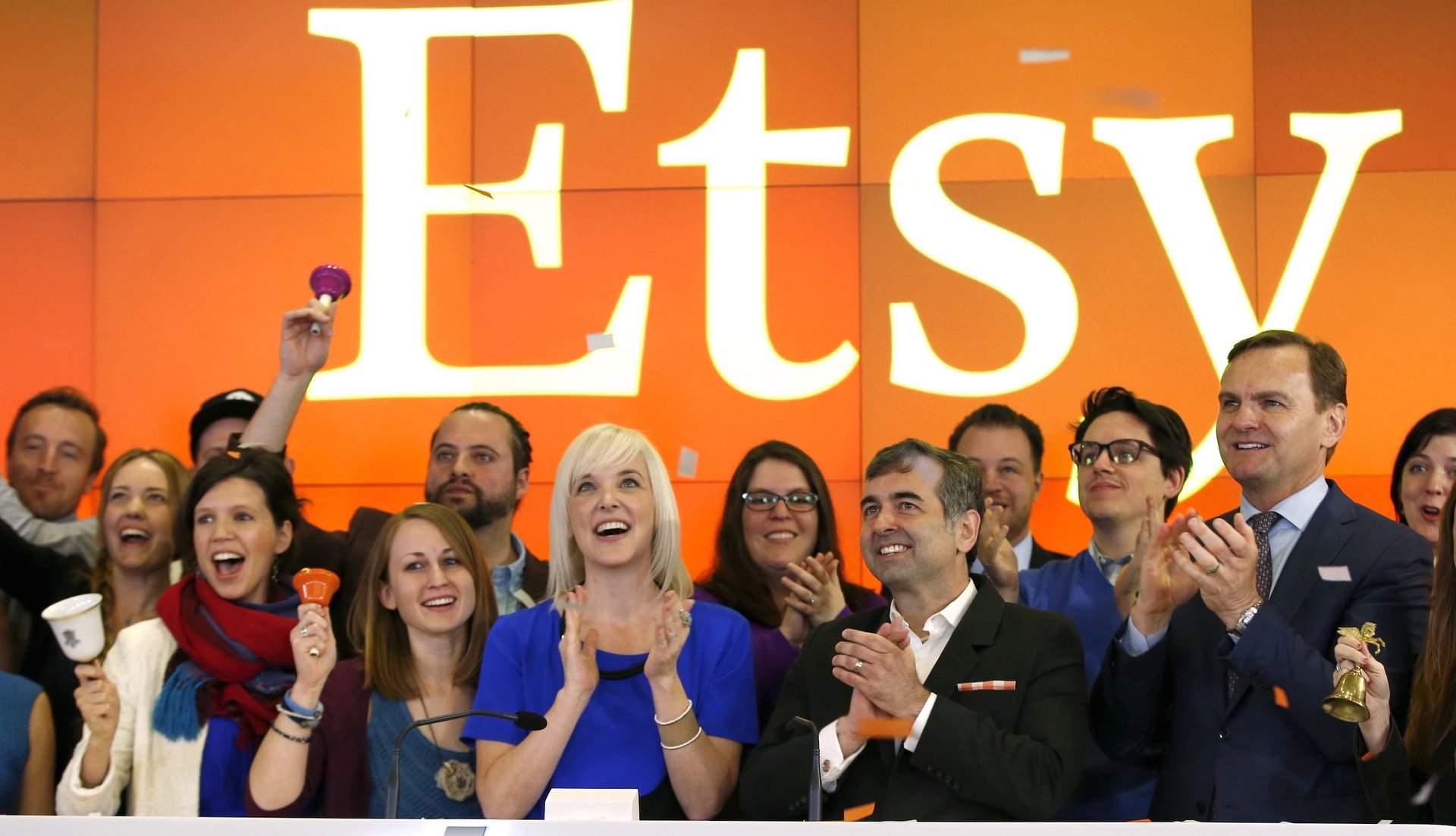Here’s what happens when Amazon decides to go after your business: Etsy edition
This post has been updated


This post has been updated
Amazon jumped into a new e-commerce niche today with Handmade at Amazon, which focuses exclusively on handmade goods from artisans around the world. In the works since at least May, it has a lineup of more than 80,000 items from around 5,000 sellers, according to the New York Times (paywall). It also replicates the business of Brooklyn-based Etsy, around since 2005 and public since this April. Etsy should be very, very scared.
Amazon has a history of decimating competitors in businesses that it enters, by outspending, out-pricing, and outwitting them. Etsy’s share price shows investor’s concern—the stock dropped 6% today and is down far more since Amazon’s interest in the market became public in the spring:
It’s not a foregone conclusion that Amazon will outright win this market. Etsy has worked extremely hard to build relationships with the people that make its products, and to position itself as a socially conscious brand. On the surface, its image should be more appealing to people who make or buy handmade goods than Amazon with its highly corporate and relentlessly competitive reputation.
But that might not mean all that much when considering the sheer amount of traffic Amazon can direct to sellers, its obsessively efficient warehouses and shipping operations, and marketing muscle. Shareholders certainly seem to think so.
Update (Oct. 8): Chad Dickerson, the CEO of Etsy made the following statement in regards to Amazon’s launch:
We believe we are the best platform for creative entrepreneurs, empowering them to succeed on their own terms. Etsy has a decade of experience understanding the needs of artists and sellers and supporting them in ways that no other marketplace can. Our platform attracts 21+ million thoughtful consumers seeking to discover unique goods, and build relationships with the people who make and sell them